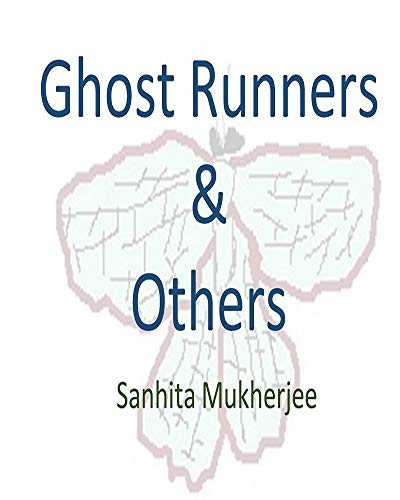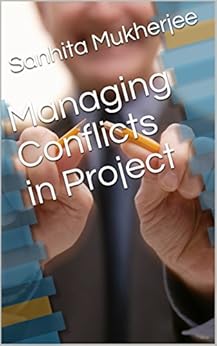
Kirtinagar – The City of Deeds
Ruh was watching Prajuktipur’s shadow on
completely deserted, gradually waning Kirtinagar, sprawling over thousand
hectares, through Eastern panes of her sixtieth-floor office.
Ruh’s mother Seema commented from behind,
“Gloating?”
Ruh replied reluctantly, “Measuring,
scheming…. the endeavor, the expenditure required to remove Rathin Gupto’s mess
on the marsh.”
Frowning Seema snapped, “Do you care
about my baba’s blood, sweat, money dissolved in the marsh, keeping Kirtinagar
intact?”
Ruh bantered, “In control.”
She added then, "I’ve checked the
land records. Guptos used to own the marsh. Then the government put limit on
individual landholding. Rathin’s father lost the marsh.”
Seema screamed, “Rathin? Not dadan? Disrespecting
your grandfather!”
Ruh laughed out loud, “Clever dadan!
If I call you Seema, I’ll end up with Ma….”
Seema reminded Ruh, “This Pajuktipur office,
trendy outfits, cars, your snuffs, gadgets – my shrewd baba earned all.
The control you’re contorting about… he bought that, bribing politicians… freed
the marsh from squatters, from their shacks made of rags and cane on raised bamboo
platforms, by buying their non-salable ownership, bestowed to them by the
government, for their rehabilitations...”
Ruh interrupted, “Dadan harvested
return on investment. The Democratic Government, run by politicians on his payroll,
paid him for filling up the marsh and building Kirtinagar thereof.”
She asserted then, “Dadan knew… every
construction at Kirtinagar was destined to be corroded by moisture, creeping up
through pores of landfill, by water clogging…”
Seema justified, “Drag of developing
Kirtinagar inflicted baba with hypertension, culminated into cerebral
thrombosis.”
Ruh slandered, “Then his dutiful
daughter left fashionable student politics and joined nasty family business.”
Seema reminisced, “I’s twenty-one then. It
was fun being tagalong to Mrinal, charismatic campus leader of violent student
politics…”
Ruh taunted, “Tagalong? You’re lovers.
Though Deepak’s your fiancé then.”
Seema scowled, “Deepak? You used to call
him baba….”
Ruh sneered, “Yay, the looser tried hard
to be my father.”
Seema recalled, “I approached Kirtinagar
residents for converting their damp, friable small family homes to high rises.
Then Prajuktipur had just began to grow, unable to accommodate all its workers
belonging to several echelons of pay. High demand for low cost housing in
vicinity was just about to pop.”
She continued, “Resources were scant
then. Baba’s unable to walk, talk or eat. Most residents of Kirtinagar
willingly converted their property, accepting compensations, in cash or flats
or a combination of both. Deepak’s the lender. The wealthier Kirtinagar denizens
were resistant. Mrinal’s ingenious maneuvers….”
Ruh slandered, “Ingenious maneuvers?
You’re glorifying how Mrinal burned a few of them alive.”
She
went on, “Your ever-delayed repayments made Deepak look into your books. Thus,
he realized how Mrinal was sucking your business, how return on investment was
just break even, though sales figures were humongous continuously for ten years.”
Seema mentioned scornfully, digressing
intentionally, “On your fifth birthday, Deepak wished for another child, to
help you with the business.”
Ruh laughed and replied, “You spilled
the beans…..”
Seema, too, laughed and added, “The look
on his face…. I still remember. He took quite a while to assimilate, then
surmised, ‘Oh! It’s always Mrinal.’ I abruptly rectified though, ‘Ruh’s from
Ashis, the interior decorator, hired for our Prajuktipur office.”
Ruh inferred, “Thus Deepak lived lost,
till he succumbed to the road rage”.
Then, she returned to Seema’s initial
question, “Not gloating, though nobody’s out there with the leverage of knowing
my criminal secret…... of stealing a fatal microbial strain from the college
lab, then mixing it to Kirtinagar’s water supply lines, all by myself, leaving
no loose end, hence, no risk of being blackmailed, unlike your messy arrangements
involving Mrinal.”
Few months ago, Seema alerted Ruh, “Business’
about to collapse, unless we match our stride to catch up with current booming
trend in Prajuktipur. High rise buildings comprising dingy apartments, stingy
shops, congesting Kirtinagar, like litter, must give way to planned development
of spacious well-lit condos, town houses, bungalows, shopping plazas with huge parking
spaces, wide drivable roads, greenery, underground sewerage and drainage…. I can’t
compensate all the residents of Kirtinagar. Thirty thousand people lives in its
each square kilometer, over three hundred thousand people in total, incurring a
hundred billion rupees in compensation.”
Ruh sarcastically added then, “Ask
Mrinal to drop a bomb on Kirtinagar, though he’ll bleed the business white for the
job, wrenching you for never marrying him.”
A week after this conversation, in wee
hours of a weekday, Ruh went live on social media, sharing her stray dog feeding
endeavor amidst the crew of Kirtinagar Municipality, at one of Kirtinagar’s water
supply maintenance sites. Instantly, she earned compassion of the crew. Keeping
the crew busy in front and rear of her camera, Ruh, stealthily, added the
microbe colony to the city water supply. In a few weeks, some unknown infection
wiped out population of three blocks of Kirtinagar.
Ruh’s video of dog feeding went viral. Banking
upon hugely compassionate public mood, she buzzed continuously against nexus of
corrupt politicos and construction farms, holding them responsible for fatal
infection at Kirtinagar.
In tandem, the mainstream media
sensation machinery narrative held Ruh a hero, a scion revolting against her own
people. Also, their reportage terrorized Kirtinagar residents of imminent death.
Within weeks, Kirtinagar dwellers vacated the city, voluntarily.
Ruh’s explanation about her modus
operandi silenced Seema. Ruh asserted the forward plan, “You must soon announce
my engagement to Prama.”
Seema reacted, “The cement baron Dutta’s
daughter!”
Ruh ignored, “It must be ostentatious.
It’ll bring you to the fold of sympathizers of marginalized persons. It’ll
steer clear all bad press about redevelopment of Kirtinagar”
Seema fumbled, “Even last night your orgasmic
moans were from Soham! What’s about him?”
Ruh snapped, “I’ll keep him in the closet.
Until open relationship for bisexuals or promiscuity in general becomes
fashionably adorable, or sexual straightness starts to be ostracized….”
She digressed abruptly though, “Wanna
get rid of Mrinal?”
After three months, Mrinal succumbed to
heart attack, without prior heart complaint. Ruh posted a photo of Mrinal on
social media explaining how he inspired Ruh.














